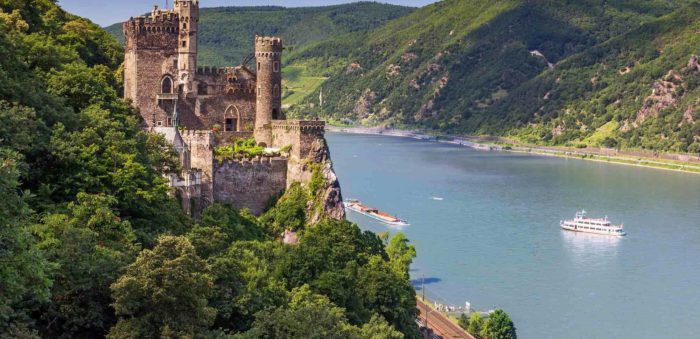After a long summer drought, the traffic at one of the shallowest points on the Rhine was halted for approximately a month, resulting to a severe disadvantage to Rhine’s transport artery. The impact challenged Germany’s industrial machine, slowing economic growth in the third and fourth quarters. It was the latest sign of how even advanced industrial economies are increasingly fighting the effects of global warming.
Kevin Kilps, a 15-year Rhine veteran, stated
You can see the water levels are lower each year. It’s scary to watch the climate changing.
As Rhine’s source is in the Swiss Alps, the river moves 800 miles through the the industrial zones of Switzerland, Germany and the Netherlands before emptying into the sea at Rotterdam, Europe’s busiest port, according to Bloomberg.
Because of the summer drought, low water shut down the shipping and Thyssenkrupp AG was forced to delay shipments to customers like automaker Volkswagen AG as it couldn’t get raw materials to a mill in Duisburg.
Because of climate change, the river is fed by glaciers and rain.
[smlsubform prepend=”GET THE SAFETY4SEA IN YOUR INBOX!” showname=false emailtxt=”” emailholder=”Enter your email address” showsubmit=true submittxt=”Submit” jsthanks=false thankyou=”Thank you for subscribing to our mailing list”]
Yet, alpine ice flows shrank 28% between 1973 and 2010, as 2010 being the date of the most recent in-depth study by the Swiss government.
That decline might be as much as 35% now, according to Wilfried Hagg, glacier expert at Munich University.
Also, Hagg quoted that
The Alps are warming at an even faster rate as snow and ice melts…A warming climate means that incidents like the low river levels this summer are more likely to occur.
As the climate change has accountable impacts on the area, the dredging of the river is impossible since the area around Kaub is a UNESCO World Heritage site.
Water depths, which hit 12-year lows at Kaub for most of the second half of 2018, affected barge flows for months.
As a result, the vessels that commonly haul up to 18.000 barrels of diesel weren’t allowed to load at full capacity until late December and fluctuating water levels continued to affect cargo activity in January, according to Riverlake Barging, a Rotterdam-based broker.
Concluding, fuel pumps ran dry last summer in Baden-Wuerttemberg because of supply problems. Consequently, natural gas prices in Europe experienced a leap to 13% in November.






























































